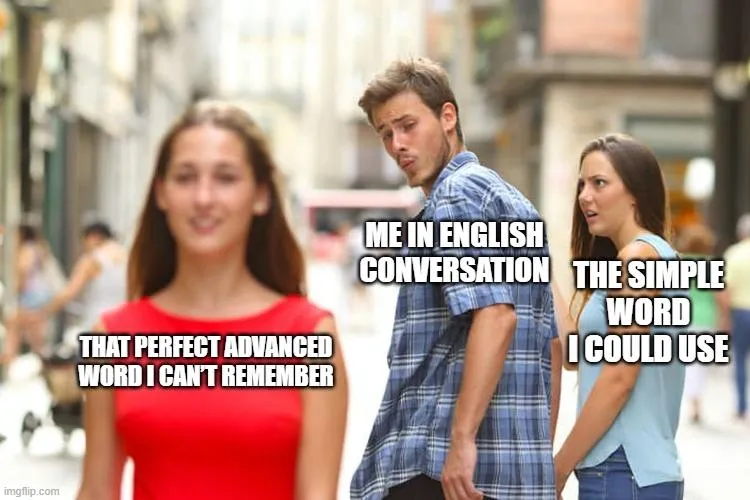
Your Mind Goes Blank When Speaking English? Here’s How to Fix It
Your Mind Goes Blank When Speaking English? Here’s How to Fix It
🧠😬 “It’s not like I don’t know English. I read in English. I even think in English…
But when I try to speak, my mind goes blank.”
If that sounds like you, you’re not alone.
Many non-native English-speaking professionals—especially in IT, business, and remote global teams—face the same frustrating challenge:
You understand English perfectly, but when it’s time to speak, you hesitate, freeze, or can’t find the right words.
So what’s happening?
The Problem Isn’t What You Know — It’s What You Can Use
Most advice says: “Expand your vocabulary.”
And yes, it helps… but not always in the moment when you need it most.
That’s because:
Knowing 2,000 words doesn’t mean you can retrieve them under pressure.
Memorizing word lists doesn’t prepare your brain for real-time conversations.
Passive vocabulary ≠ active speaking skills.
Active vocabulary is what allows you to find the right word fast—and use it confidently.
🧩 The Key: Build Habits That Make Vocabulary Stick (and Work)
Here are 3 practical methods to grow your active vocabulary—the kind that sticks in your memory and shows up when you speak.
1️⃣ Story Swap – Make Words Personal
Instead of repeating a word 10 times from a flashcard…
Try using it in a short story about your own life.
📘 Example:
New word: stumble upon (to find by accident)
Mini story:
“Last week, I stumbled upon a little café near my office that serves the best croissants.”New word: hesitate (to pause before acting or speaking)
Mini story:
“During yesterday’s meeting, I hesitated before answering because I wasn’t 100% sure of the data.”
✅ Why It Works:
Real stories = real emotion = stronger memory
You learn the word in context
You can re-tell the same story to practice fluency later
2️⃣ The 3-Sentence Rule
Here’s a simple rule to turn a passive word into an active one:
Step 1: Say it out loud
Step 2: Write 3 different sentences
Step 3: Use it in a conversation within 24 hours
📝 Example:
New word: overwhelmed
“I feel overwhelmed by emails on Monday mornings.”
“She looked overwhelmed with all the new tasks.”
“I get overwhelmed when I have to speak suddenly.”
✅ Why It Works:
The more ways you use a word, the deeper it goes into memory.
And using it within 24 hours creates urgency and recall.
3️⃣ Micro Listening for Real Phrases
Take 2–3 minutes a day to listen to native speakers (podcast, YouTube, series).
But instead of trying to understand everything—just do this:
Pick one natural phrase (not from a textbook)
Repeat it out loud
Use it in a sentence that same day
🎧 Example:
Phrase: “That caught me off guard.”
Meaning: something surprising or unexpected
Use it in conversation:
“That question caught me off guard—I wasn’t ready for it.”
✅ Why It Works:
You’re learning chunks of language, not just words.
This makes your speaking smoother and more natural.
🎯 Final Reminder: It’s Not About How Many Words You Know
It’s about how many words you can use.
You don’t need a massive vocabulary.
You need a familiar, accessible one that works when your brain is under pressure.
These habits train your brain to recall, not just recognize.
So… try one of these methods today.
Say a sentence out loud.
Write a mini story.
Practice one real phrase from a video.
Small habits. Big impact.
💬 Which of these 3 tips will you try first?
Let me know in the comments—or even better, write your own sentence using a new word today.
